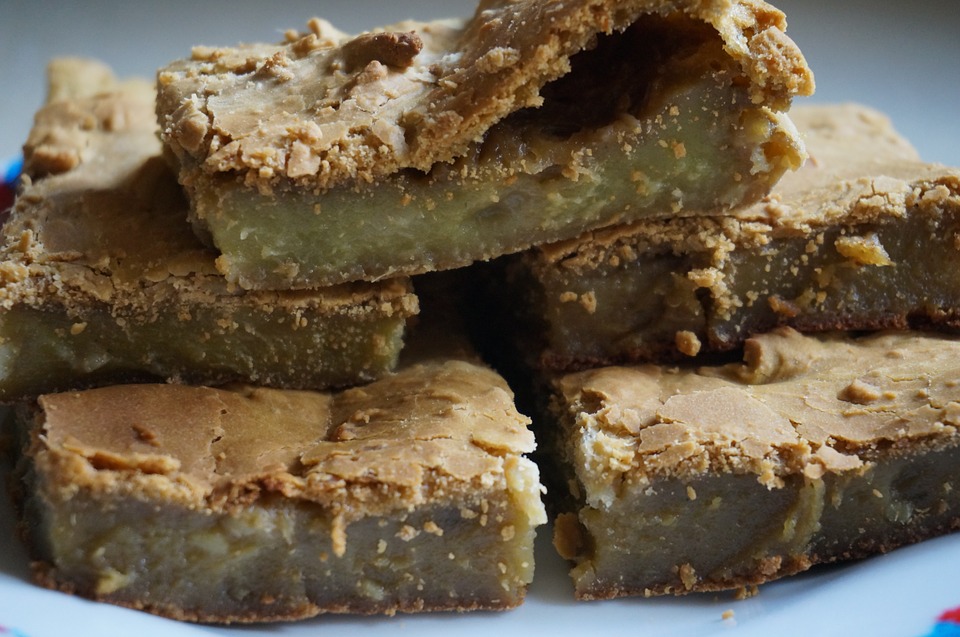This comprehensive guide explores the safety and nutritional value of sweet potatoes for cats. We’ll delve into the potential risks and benefits, answer common questions, and provide guidance on how to safely incorporate this delicious treat into your feline companion's diet.
Part 1: Nutritional Value of Sweet Potatoes for Cats

1.1. A Bounty of Vitamins and Minerals
Sweet potatoes are packed with essential nutrients that can contribute to your cat's overall well-being. They are particularly rich in:
- Vitamin A: Crucial for maintaining healthy eyesight, skin, and immune function. It helps support the production of rhodopsin, a pigment essential for low-light vision. A deficiency in Vitamin A can lead to night blindness in cats.
- Vitamin C: An antioxidant that supports collagen production, a protein that strengthens bones, tendons, and ligaments, and aids in wound healing. It also supports the immune system by boosting white blood cell activity.
- Vitamin B6 (Pyridoxine): Plays a vital role in protein metabolism, the process of breaking down proteins for energy and building new proteins. It is also crucial for brain function and the production of neurotransmitters.
- Potassium: Helps regulate fluid balance, supporting healthy blood pressure and nerve function. It also plays a role in muscle contraction and relaxation.
- Fibre: Promotes digestive health by adding bulk to stools, which helps prevent constipation and encourages regular bowel movements. Fibre also helps control blood sugar levels and can contribute to weight management.
- Beta-carotene: A powerful antioxidant that converts into Vitamin A in the body. Beta-carotene helps protect cells from damage caused by free radicals, which contribute to ageing and disease.
1.2. The Role of Antioxidants
Sweet potatoes are a good source of antioxidants, which help protect the body from damage caused by free radicals. Free radicals are unstable molecules that can damage cells and contribute to chronic diseases. Antioxidants neutralise free radicals, reducing their harmful effects.
1.3. Supporting Immune Function
The combination of vitamins A and C in sweet potatoes plays a crucial role in bolstering your cat's immune system. A healthy immune system is essential for fighting off infections and maintaining overall health.
Part 2: Potential Risks of Sweet Potatoes for Cats

2.1. Sugar Content and Weight Management
Sweet potatoes contain natural sugars, which can contribute to weight gain if fed in excessive amounts. While a small treat won't cause immediate problems, overindulging can lead to obesity, increasing the risk of health issues like diabetes and joint problems.
2.2. Digestive Discomfort and Potential Allergies
While the fibre in sweet potatoes is beneficial for digestion, consuming large quantities can cause digestive upset, including diarrhoea or vomiting. This is especially true if your cat is not used to eating sweet potatoes. Some cats may also be allergic to sweet potatoes, experiencing symptoms like itching, skin rashes, or digestive issues.
2.3. Toxicity of Sweet Potato Vines and Leaves
It's crucial to remember that the vines and leaves of sweet potatoes contain toxic compounds that can cause serious health issues in cats, including vomiting, diarrhoea, lethargy, and even liver failure. Always keep these parts of the plant away from your cat.
Part 3: Safe Ways to Feed Sweet Potatoes to Your Cat
3.1. Cooking Methods and Preparation
- Always cook sweet potatoes thoroughly: Raw sweet potatoes can be difficult to digest and may contain harmful bacteria. Cooking them ensures they are safe and easier for your cat's digestive system to process.
- Preferred cooking methods: Steaming or baking is recommended as these methods retain most of the nutrients and flavours. Avoid frying or adding unhealthy fats and oils.
- Cool completely before feeding: Allow the cooked sweet potatoes to cool completely before offering them to your cat to prevent burns and discomfort.
3.2. Serving Size and Frequency
- Treat, not a staple: Sweet potatoes should be given as a treat, not a staple food, and only in moderation.
- Appropriate serving size: A small piece of cooked sweet potato, no larger than a thumbnail, is generally suitable for an adult cat. You can adjust this based on your cat's size and activity level.
- Frequency: Offer sweet potatoes no more than a few times per week to prevent weight gain and digestive issues.
Part 4: Choosing the Right Sweet Potatoes
4.1. Organic vs. Non-Organic
- Organic sweet potatoes: Typically grown without pesticides or herbicides, which can be beneficial for your cat's health. However, non-organic sweet potatoes are still safe to feed, as long as they are washed thoroughly before cooking.
- Wash thoroughly: Whether organic or non-organic, always wash sweet potatoes thoroughly to remove any dirt, debris, or pesticide residue.
4.2. Sweet Potato Variety
- Any variety can be fed: Any variety of sweet potato can be given to cats, but some varieties are sweeter than others.
- Less sugary options: Choose varieties that are less sugary, such as orange or yellow sweet potatoes, for a healthier treat option.
- Consider your cat's preferences: Experiment with different varieties to see which your cat enjoys the most.
Part 5: Sweet Potato Alternatives for Cats
- Pumpkin: A good source of fibre, vitamins, and minerals. It can also help with digestive issues, such as constipation.
- Carrots: Rich in vitamin A and fibre. They are a good source of beta-carotene, which converts to Vitamin A in the body.
- Green beans: Low in calories and a good source of fibre. They can be a good choice for cats who need to lose weight or manage their weight.
- Broccoli: A nutritious vegetable packed with vitamins and minerals. Broccoli is a good source of Vitamin C and potassium.
Part 6: Signs of Sweet Potato Toxicity in Cats
- Vomiting: A common sign of digestive upset or toxicity.
- Diarrhoea: Can be caused by changes in diet, allergies, or toxicity.
- Lethargy: Indicates weakness, fatigue, or illness.
- Loss of appetite: A sign that your cat is not feeling well.
- Abdominal pain: May be indicated by a tense abdomen, groaning, or a hunched posture.
- Increased thirst: Can be a sign of dehydration or kidney problems.
- Increased urination: Can be a sign of diabetes or kidney problems.
If you notice any of these signs after feeding your cat sweet potatoes, contact your veterinarian immediately.
Part 7: Consulting Your Veterinarian
- Individual needs: Your cat's age, health condition, and dietary needs will influence whether sweet potatoes are a suitable treat.
- Personalized advice: Your veterinarian can provide personalized advice based on your cat's specific circumstances.
- Allergy testing: If you suspect your cat might be allergic to sweet potatoes, your veterinarian can perform allergy testing to confirm your suspicions.
Part 8: FAQs
8.1. Can kittens eat sweet potatoes?
Yes, kittens can eat sweet potatoes, but they should be given in very small amounts and cooked thoroughly. It's best to consult with your veterinarian before offering any new foods to your kitten.
8.2. Are sweet potatoes good for cats with diabetes?
While sweet potatoes are a relatively healthy treat, they do contain carbohydrates, which can affect blood sugar levels. It's best to avoid giving sweet potatoes to diabetic cats or to discuss it with your veterinarian.
8.3. Can cats eat sweet potato skins?
The skins of sweet potatoes are generally safe for cats to eat, but they can be difficult to digest. It's best to remove the skins before feeding sweet potatoes to your cat, especially for kittens or senior cats.
8.4. Can I feed my cat sweet potato fries?
No, sweet potato fries are not suitable for cats. They are often fried in unhealthy oils and can be high in salt, which is harmful to cats. Additionally, the cooking process can destroy some of the nutrients in the sweet potatoes.
8.5. What if my cat eats too much sweet potato?
If your cat eats a large amount of sweet potato, they may experience digestive upset, including diarrhoea or vomiting. If you notice any signs of illness, contact your veterinarian immediately.
8.6. Can cats eat sweet potato pie?
No, sweet potato pie is not suitable for cats. It contains sugar, dairy, and other ingredients that are harmful to cats. These ingredients can cause digestive upset, weight gain, and even pancreatitis in cats.
Conclusion
Sweet potatoes can be a healthy and delicious treat for cats when fed in moderation. However, it's crucial to be aware of the potential risks and to consult with your veterinarian before introducing this treat into your cat's diet. By following these guidelines, you can help ensure that your feline friend enjoys the nutritional benefits of sweet potatoes while staying healthy and happy.
Everyone is watching
-

Are Cat Ribs Flexible? Understanding Their Anatomy
CATS & KITTENSThis article delves into the fascinating world of feline anatomy, exploring the flexibility of cat ribs and ho...
-

Can Cats Eat Bananas? (Everything You Need to Know)
CATS & KITTENSThis article dives into the intriguing question of whether cats can safely enjoy the sweet, yellow fruit, bana...
-

Cat Lifespan: How Long Do Cats Live?
CATS & KITTENSThis comprehensive guide explores the factors influencing the lifespan of our feline companions, providing ins...
-

Can Cats Get COVID-19? What You Need to Know
CATS & KITTENSThis article will delve into the fascinating world of feline COVID-19 susceptibility. We'll explore whether ca...
-

Can Cats Eat Eggs? A Complete Guide to Egg Safety for Your Feline Friend
CATS & KITTENSWhen it comes to treating our furry companions, we all want to ensure we're doing what's best for them. Eggs...
